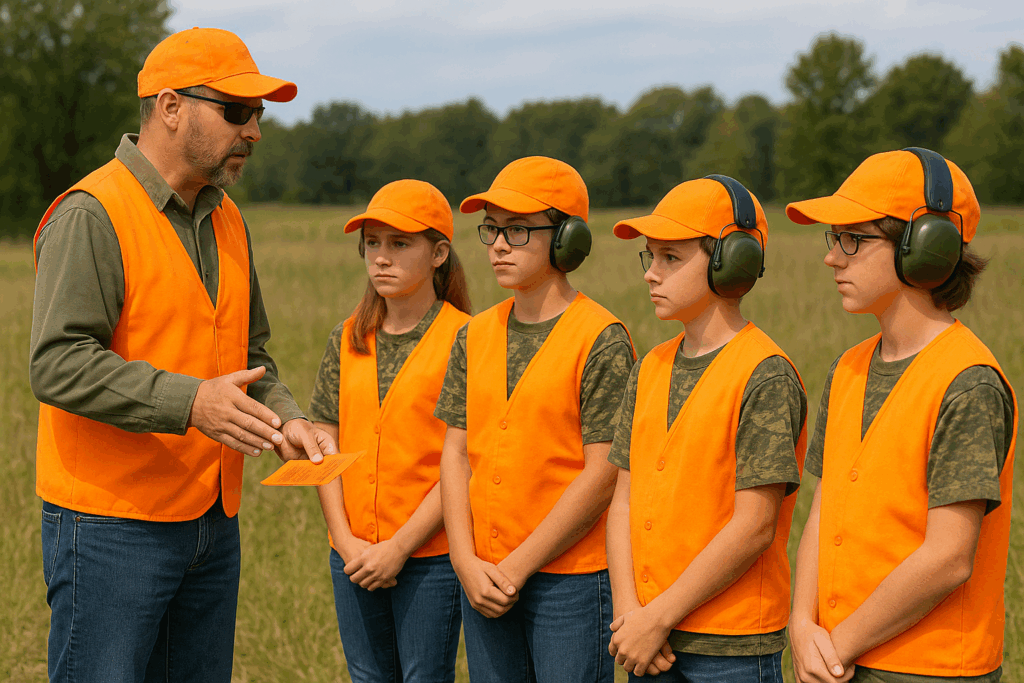Take an Official State-Approved Hunter Safety Course
How old do you have to be to take hunter education in Massachusetts?

Hunter education is a crucial step for anyone interested in hunting safely and responsibly in Massachusetts. Understanding the age requirements for taking a hunter education course helps ensure that young hunters are prepared and compliant with state regulations. In Massachusetts, the rules surrounding the minimum age to enroll in hunter education are designed to promote safety while encouraging youth participation in hunting activities. This article will explore the specific age requirements, exceptions, and related guidelines for youth hunter education in Massachusetts.
- Is There a Minimum Age to Take Hunter Education in Massachusetts?
- When Is Hunter Education Required in Massachusetts?
- Does Massachusetts Offer Online Hunter Education for Youth?
- How to Enroll in a Youth Hunter Education Course in Massachusetts
- Does a Parent or Guardian Need to Be Present?
- How Long Is the Certificate Valid in Massachusetts?
Is There a Minimum Age to Take Hunter Education in Massachusetts?
Massachusetts does not set a hard minimum age to enroll in hunter education—MassWildlife says students of all ages are welcome, though materials and exams are written at about a sixth-grade level, and the agency recommends a minimum age of 12 for most courses. Minors must have written parent/guardian permission to attend (MassWildlife provides a Minor Permission Form), and families should check individual class listings for any additional course-level requirements.
When Is Hunter Education Required in Massachusetts?
In Massachusetts, hunter education is required for first-time adult hunters age 18 and older. This requirement applies to both residents and non-residents. The state mandates that these hunters complete a state-approved hunter safety course before they can legally hunt. The course covers essential topics such as firearm safety, wildlife identification, hunting ethics, and Massachusetts-specific hunting laws.
For those who need to find a state-approved hunter safety course, information is available on the Massachusetts hunter education website.
Does Massachusetts Offer Online Hunter Education for Youth?
Massachusetts does not offer an online-only course for youth. Massachusetts requires all students, including youth, to attend an in-person class including a field day or skills session. This hands-on component is essential for demonstrating safe firearm handling and other practical skills under the supervision of certified instructors.
The combination of online learning and in-person field days ensures that youth hunters receive comprehensive training that balances convenience with essential practical experience.
How to Enroll in a Youth Hunter Education Course in Massachusetts
Enrolling in a youth hunter education course in Massachusetts involves several straightforward steps. First, interested participants or their parents should visit the Massachusetts Division of Fisheries and Wildlife website or trusted platforms like Recademics to find available courses.
Next, select a course that fits the youth’s schedule and preferred format—either fully in-person or a hybrid with online classroom work and an in-person field day. Registration typically requires providing basic information about the student and, if under 18, parental consent.
Payment details and course materials will be provided upon registration. It is important to complete all course components, including passing the final exam and attending the field day, to receive certification.
For additional guidance or questions, contacting MassWildlife directly can provide personalized assistance and ensure compliance with all state requirements.
Does a Parent or Guardian Need to Be Present?
For youth participating in hunter education courses in Massachusetts, a parent or guardian’s involvement is often necessary. While the classroom portion of the course may be completed independently, the in-person field day or skills session usually requires a parent or guardian to accompany the minor.
This presence ensures that the youth has appropriate supervision and support during practical exercises involving firearms or archery equipment. Additionally, parents or guardians may need to register the youth for the course and provide consent forms as part of the enrollment process.
MassWildlife emphasizes the role of parents and guardians in fostering a safe and responsible hunting environment for young participants, making their involvement a key component of the hunter education experience.
How Long Is the Certificate Valid in Massachusetts?
Once a hunter education course is successfully completed in Massachusetts, the certificate issued is valid for life. This lifetime validity means that hunters do not need to retake the course or renew their certification to maintain eligibility for purchasing hunting licenses in the state.
Furthermore, Massachusetts hunter education certificates are recognized by many other states through reciprocal agreements. This recognition allows certified hunters from Massachusetts to hunt legally in other states that honor the certification, provided they comply with local hunting laws and licensing requirements.
This lifetime and reciprocal validity underscores the importance of completing an approved hunter education course early, as it benefits hunters throughout their lifetime and across state lines.
Hunting
- Alabama
- Alaska
- Arizona
- Arkansas
- California
- Colorado
- Connecticut
- Delaware
- Florida
- Georgia
- Hawaii
- Idaho
- Illinois
- Indiana
- Iowa
- Kansas
- Kentucky
- Louisiana
- Maine
- Maryland
- Massachusetts
- Michigan
- Minnesota
- Mississippi
- Missouri
- Montana
- Nebraska
- Nevada
- New Hampshire
- New Jersey
- New Mexico
- New York
- North Carolina
- North Dakota
- Ohio
- Oklahoma
- Oregon
- Pennsylvania
- Rhode Island
- South Carolina
- South Dakota
- Tennessee
- Texas
- Utah
- Vermont
- Virginia
- Washington
- West Virginia
- Wisconsin
- Wyoming
